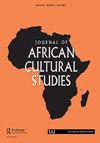Re-centring the Mothers of Rwanda’s Abducted “Métis” Children
IF 0.7
2区 社会学
Q2 CULTURAL STUDIES
引用次数: 0
Abstract
In April 2019, the Belgian prime minister publicly apologised for the segregation, deportation and forced adoption of thousands of children born to mixed-race couples during Belgian colonial rule in Burundi, the Democratic Republic of the Congo and Rwanda. Known as the “métis”, the children were rarely acknowledged by their white European fathers. The apology took place against a backdrop of increasing calls for accountability for colonial crimes as well as a small amount of emerging research on the métis’ experiences. Yet, what is striking in both public discourse and academic scholarship is the lack of attention paid to the mothers of these children. Starting with a discussion of Kazungu, le métis, an autobiographical docudrama by Rwandan-born filmmaker Georges Kamanayo Gengoux, and moving through an analysis of Beata Umubyeyi Mairesse’s recent novel Consolée, this article uses a decolonial feminist approach to suggest that, although the missing mothers’ voices have been silenced by colonial history, creative works by Rwandans can offer new spaces for repositioning the mothers at the centre of their own history.重新安置卢旺达被绑架“姆萨迪斯”儿童的母亲
2019年4月,比利时首相就比利时殖民统治期间在布隆迪、刚果民主共和国和卢旺达对混血夫妇所生的数千名儿童进行隔离、驱逐和强迫收养公开道歉。这些孩子被称为“msamutis”,很少得到他们的欧洲白人父亲的认可。道歉的背景是,越来越多的人呼吁对殖民罪行进行问责,同时也有少量关于移民经历的新兴研究。然而,在公共话语和学术研究中,引人注目的是对这些孩子的母亲缺乏关注。本文以讨论卢旺达出生的电影制作人Georges Kamanayo Gengoux所著的自传体纪录影片Kazungu, le m录影带为开头,然后分析Beata Umubyeyi maresse最近的小说《consolemade》,以非殖民主义的女权主义方法提出,虽然失踪的母亲的声音因殖民历史而被压制,但卢旺达人的创意作品可以提供新的空间,重新定位母亲在本国历史的中心。
本文章由计算机程序翻译,如有差异,请以英文原文为准。
求助全文
约1分钟内获得全文
求助全文
来源期刊

Journal of African Cultural Studies
Multiple-
CiteScore
1.70
自引率
10.00%
发文量
13
期刊介绍:
The Journal of African Cultural Studies publishes leading scholarship on African culture from inside and outside Africa, with a special commitment to Africa-based authors and to African languages. Our editorial policy encourages an interdisciplinary approach, involving humanities, including environmental humanities. The journal focuses on dimensions of African culture, performance arts, visual arts, music, cinema, the role of the media, the relationship between culture and power, as well as issues within such fields as popular culture in Africa, sociolinguistic topics of cultural interest, and culture and gender. We welcome in particular articles that show evidence of understanding life on the ground, and that demonstrate local knowledge and linguistic competence. We do not publish articles that offer mostly textual analyses of cultural products like novels and films, nor articles that are mostly historical or those based primarily on secondary (such as digital and library) sources. The journal has evolved from the journal African Languages and Cultures, founded in 1988 in the Department of the Languages and Cultures of Africa at the School of Oriental and African Studies, London. From 2019, it is published in association with the International African Institute, London. Journal of African Cultural Studies publishes original research articles. The journal also publishes an occasional Contemporary Conversations section, in which authors respond to current issues. The section has included reviews, interviews and invited response or position papers. We welcome proposals for future Contemporary Conversations themes.
 求助内容:
求助内容: 应助结果提醒方式:
应助结果提醒方式:


